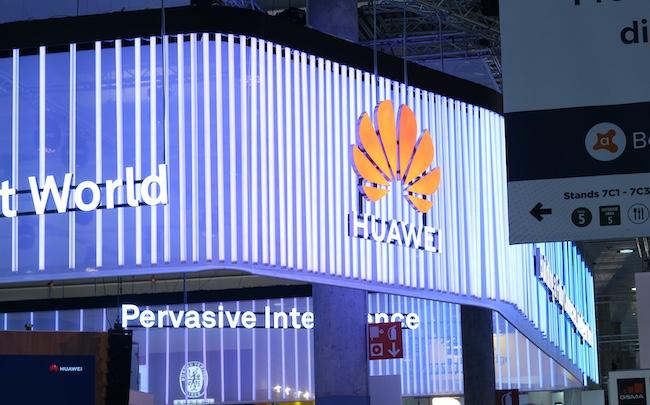For fear of the Covid-19 pandemic, the major telephone groups, including the Korean Samsung, participated only virtually in the sector's annual high mass, which closed its doors in early July in the capital of Catalonia.
"Huawei's physical presence underscores the importance of Europe and the wider global telecoms sector in the group's strategy," said Thomas Husson, analyst at Forrester.
In this Salon, which has a very lightened format due to the health situation, Huawei had one of the largest stands, topped with the slogan "Lighting Up the Future".
Suspected by the former Trump administration of espionage, Huawei was placed on a blacklist by Washington in 2019, which prevents the Chinese group from accessing American technologies for its products, in particular the Android operating system, property from Google and used by almost all smartphone manufacturers outside Apple, but also components for its network equipment or smartphones.
Consequence: while Huawei had succeeded in becoming one of the world's biggest sellers of smartphones with Samsung and Apple, even briefly occupying the place of world number one, the Chinese group was ejected from the podium.
At the end of 2020, Huawei was only the sixth largest manufacturer in terms of sales, and in the first quarter of 2021, its sales in China had fallen by 50% year on year, according to the firm Canalys.

"Outside of China, Europe has been the most important region for Huawei for six or seven years already," said Ryan Reith, analyst at IDC. “They were able to sell premium phones there, on which they make more margin. Europe remains a key market for this and Huawei will not turn away from it. To be absent from Europe's biggest mobile telephony event "would be like saying 'we're finished'", says Mr Reith.
Priority to 5G
Especially since Huawei has just launched its HarmonyOS operating system, in order to compete with Android (Google) and iOS (Apple), which currently monopolize the market. The Chinese manufacturer “must convince telephony equipment manufacturers to include its software in different regions of the world”, hence the interest of physical meetings in Barcelona, specifies Mr. Husson.
As every year, entry to the Huawei stand was by invitation only, a sign that the group had carefully selected the companies to meet and cared little for the general public, to whom no new telephone was presented. unlike previous years.
Above all, the Chinese firm wants to strengthen its primary activity, that of telecom network infrastructure, essential for the future super-fast 5G internet.
In fact, “Huawei's branch was that of the infrastructure provider. It is crucial for Huawei to network with as many international telecom operators as possible, in order to allay its fear of a ban on its equipment by certain governments”, underlines Sashan Segan, of PC Mag.
Strongly prompted by Washington, the United Kingdom and Australia decided to exclude Huawei from their 5G market. In the European Union, Sweden has done the same, and several other countries, including France, are seeking to reduce the group's place in their mobile networks.
Moreover, the head of the network branch Ryan Ding praised in Barcelona the quality of Huawei equipment and the opportunities offered. “I will explain to you how we maintained the robustness of the network during the pandemic”, he explained to an audience of specialists. "In countries that develop 5G faster, telecom operators see their revenues grow faster, and those countries have better digital infrastructure," Ding added.
He also gave the example of the efficiency and productivity gains made in certain Chinese industries, such as mining and steel, where some workers are beginning to be able to work remotely thanks to 5G.
Source: AFP
